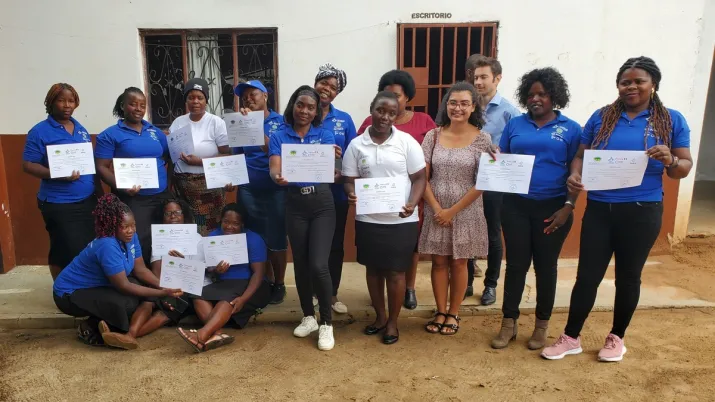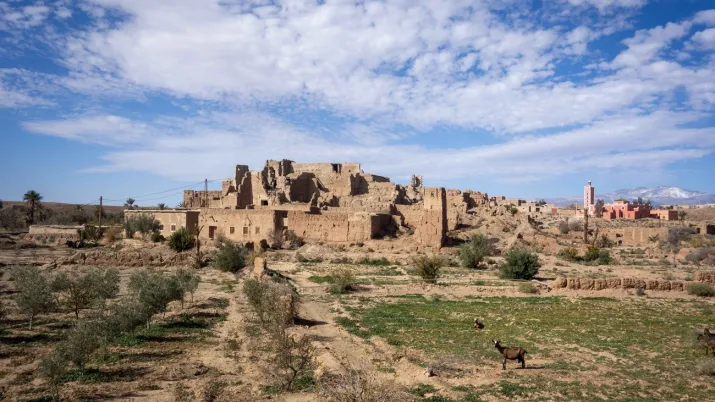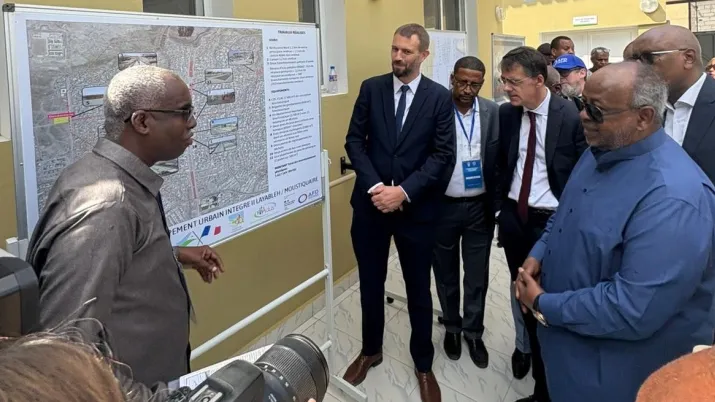Share the page
A survey on the perception of development policy in four African countries
Published on

How is France's development policy perceived in Africa? How is its concrete impact assessed, and how can we better meet people’s expectations? To get key insights, Agence Française de Développement (AFD) commissioned Ipsos to conduct a perception survey of 4,099 people in October and November 2024 across four AFD partner countries (Kenya, Senegal, the Democratic Republic of the Congo and Côte d'Ivoire). This listening-focused approach revealed strong support as well as expectations for close relationships.
On the eve of the tenth anniversary of the adoption of the Sustainable Development Goals (SDGs) and the Paris Agreement, the study conducted by Ipsos confirms Africans' attachment to development policy. One in two respondents are familiar with this type of action and, contrary to popular belief, over 80% rate the terms “aid” and “development” positively, with a preference for the latter. Between 20% and 40% of respondents said they were even familiar with the SDGs. However, one in two of those surveyed also feels that development policy needs to be better targeted at local communities and the most vulnerable. According to over 70% of respondents, corruption and mismanagement of funds are the main risks to the effectiveness of aid.
This survey is a useful complement to AFD's annual European (France, Germany, Poland, Italy and Sweden) opinion survey (French only). Published in April 2024, it also showed a similar attachment among Europeans to development policy and its utility.
Read also: Development aid: what's it all about?
These results testify to high expectations regarding the effectiveness of official development assistance. The accountability and transparency efforts undertaken by AFD Group must be continued, with concrete impacts expected on the ground. Indeed, perceptions of the effectiveness of development aid show that it is often judged to be poorly targeted, not always reaching the neediest populations. This is felt by 47.5% of people in Côte d'Ivoire, 62.7% in Senegal, 56.4% in the Democratic Republic of Congo (DRC) and 61.8% in Kenya.
AFD: a committed agency that would benefit from more notoriety
France is one of the top three countries associated with development aid, leading the way by a wide margin in Côte d'Ivoire and Senegal. France's decision to include sport and the cultural and creative industries in its development strategy is acclaimed by over 90% of respondents.
While AFD would benefit from being better known by the general public, 80% of those who do know it have a positive image of the agency, highlighting its commitment to key themes such as climate change, health and entrepreneurship.
Read also: AFD Group's partnerships around the world
AFD’s recognition is mainly within institutional and economic circles. One of the major challenges is therefore to broaden this audience, particularly among the younger generations and local operators. According to respondents in Kinshasa and Lubumbashi (DRC), Abidjan and Bouaké (Côte d'Ivoire), Dakar and Saint-Louis (Senegal), and Nairobi and Mombasa (Kenya), most of the beneficiaries of international solidarity get their information predominantly via messaging platforms and social networks, notably Facebook, WhatsApp and TikTok – a far cry from traditional media channels.
A listening-focused approach for better impact
By directly questioning people from these four African countries about their perceptions of France's development policy, AFD illustrates its commitment to collaborating with its African partners. This survey, which is set to be repeated annually and extended to other countries, is a key step towards better understanding people's expectations, adjusting our actions and improving our impact.
As the world of development stands on the brink of major transformations, this study is a valuable tool for strengthening dialogue with our African partners. Better understanding enables us to put ourselves in others' shoes and build mutually beneficial partnerships.
To find out more: Survey on the perception of the development policy in Africa (French only)



